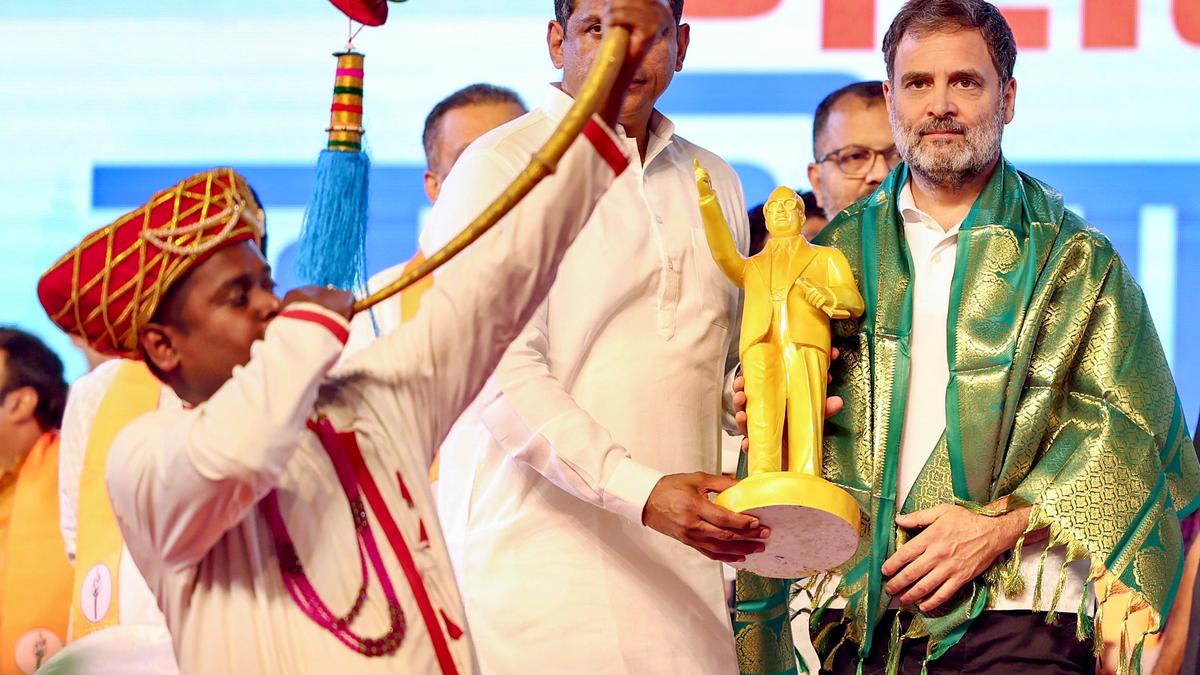
Why is there widespread discontent in Maharashtra?
The Hindu
Maharashtra's cooperative networks reinforce Maratha dominance, impacting electoral politics, socio-economic dynamics, and community aspirations significantly.
In Maharashtra, the extensive network of cooperatives, particularly in the banking, sugar, and dairy sectors, has been instrumental in forging strong patronage linkages that have reinforced the Maratha community’s dominant hold on State power. These cooperatives serve not only as economic entities but also as vital socio-political institutions that facilitate control over resources, employment, and local governance.
Maratha leaders have historically established and managed these cooperatives, allowing them to distribute economic benefits and opportunities within their communities. By controlling such cooperatives, Maratha politicians can extend patronage to farmers, workers, and local businesses, thereby securing loyalty and support. It creates a reciprocal relationship where beneficiaries of the cooperatives support Maratha leaders politically, ensuring their continued dominance in electoral politics. The cooperative model works well for both the farmers and the rural elite. Being part of a cooperative meant the farmer was assured of a minimum price for the procurement of his crop and had a guaranteed market at the time of sowing. Thus, he could borrow with ease, and the banks were also assured of repayments in good time. Moreover, cooperatives have provided a platform for Maratha leaders to ascend to significant political positions. The wealth and influence generated through these institutions enable them to finance election campaigns, mobilise grassroots support, and maintain a strong presence in both State and local governance structures. The cooperative model has also facilitated the development of leadership within the Maratha community, creating a pipeline of influential figures who can sustain the community’s political influence over generations.
Maharashtra’s latest Maratha quota law and its challenges | Explained
However, this patronage system has marginalised other communities by concentrating economic and political power within the Maratha elite. This concentration has led to disparities in resource allocation and access to opportunities for non-Maratha groups, reinforcing social hierarchy. It has also allowed Maratha leaders to negotiate and form alliances that favour their interests, often at the expense of broader inclusive development. The cooperative model has not only played an important role in continuing the long dominance of Congress in the State but has also been used by other political parties to expand their electoral base, either by setting up their own cooperatives or by co-opting and incorporating existing cooperative leaders into their party fold, facilitating rampant party switching between such cooperative doyens.
These cooperative networks in Maharashtra have thus, been pivotal in solidifying Maratha dominance. Through economic control and the distribution of patronage, Maratha leaders have maintained their influence over electoral outcomes and policy decisions, reinforcing their position at the helm of Maharashtra’s political landscape.
Maratha quota demand | Maharashtra’s winter of caste discontent
Despite the Maratha community’s political dominance, significant sections of the population face economic challenges due to agricultural distress and lack of employment. Agricultural distress, caused by factors such as droughts, fluctuating market prices, inadequate infrastructure, and a steady decline in landholdings, has affected many Maratha farmers. This economic hardship has led to increased unemployment and financial instability within the community, fuelling discontent and a sense of marginalisation.





















 Run 3 Space | Play Space Running Game
Run 3 Space | Play Space Running Game Traffic Jam 3D | Online Racing Game
Traffic Jam 3D | Online Racing Game Duck Hunt | Play Old Classic Game
Duck Hunt | Play Old Classic Game











